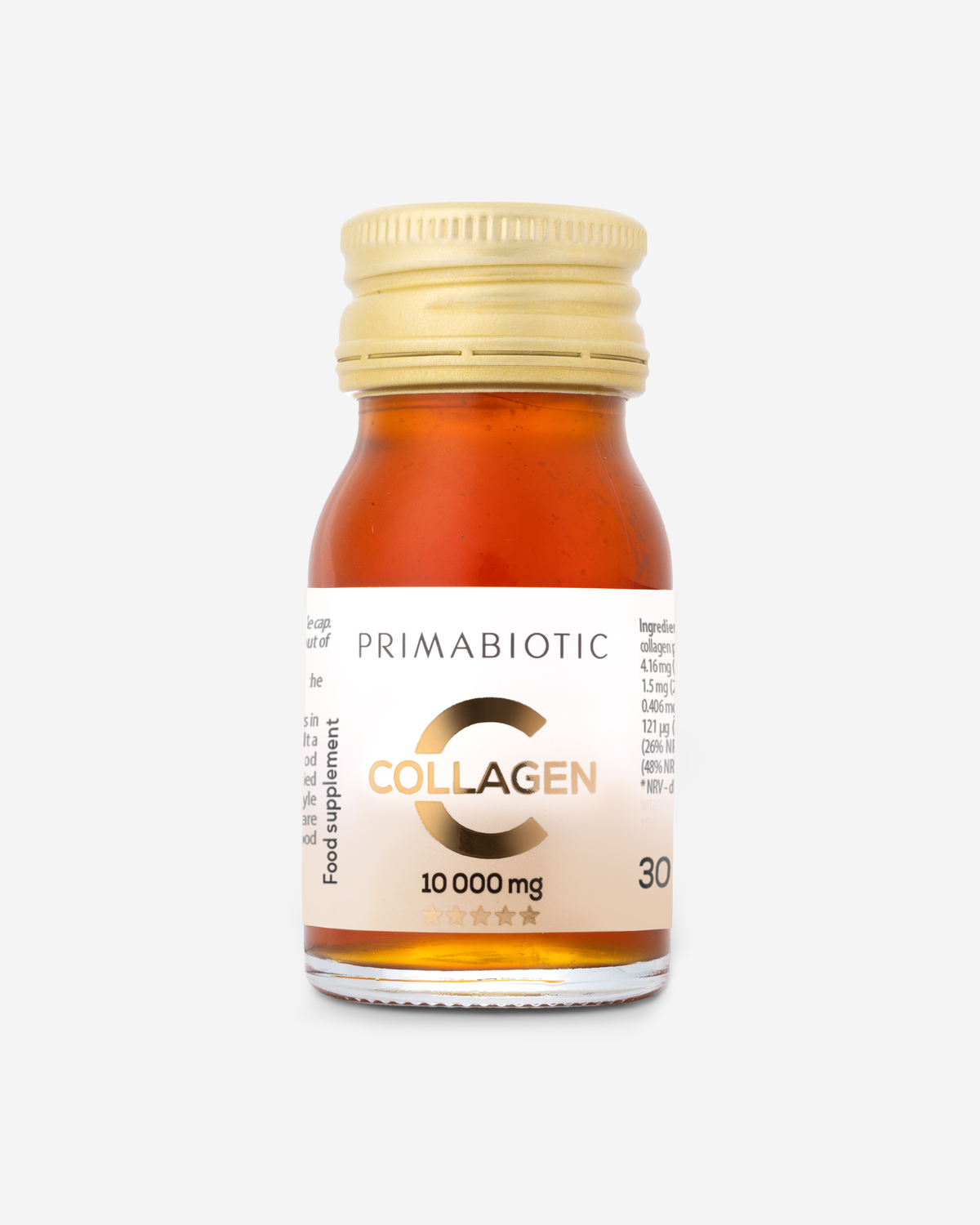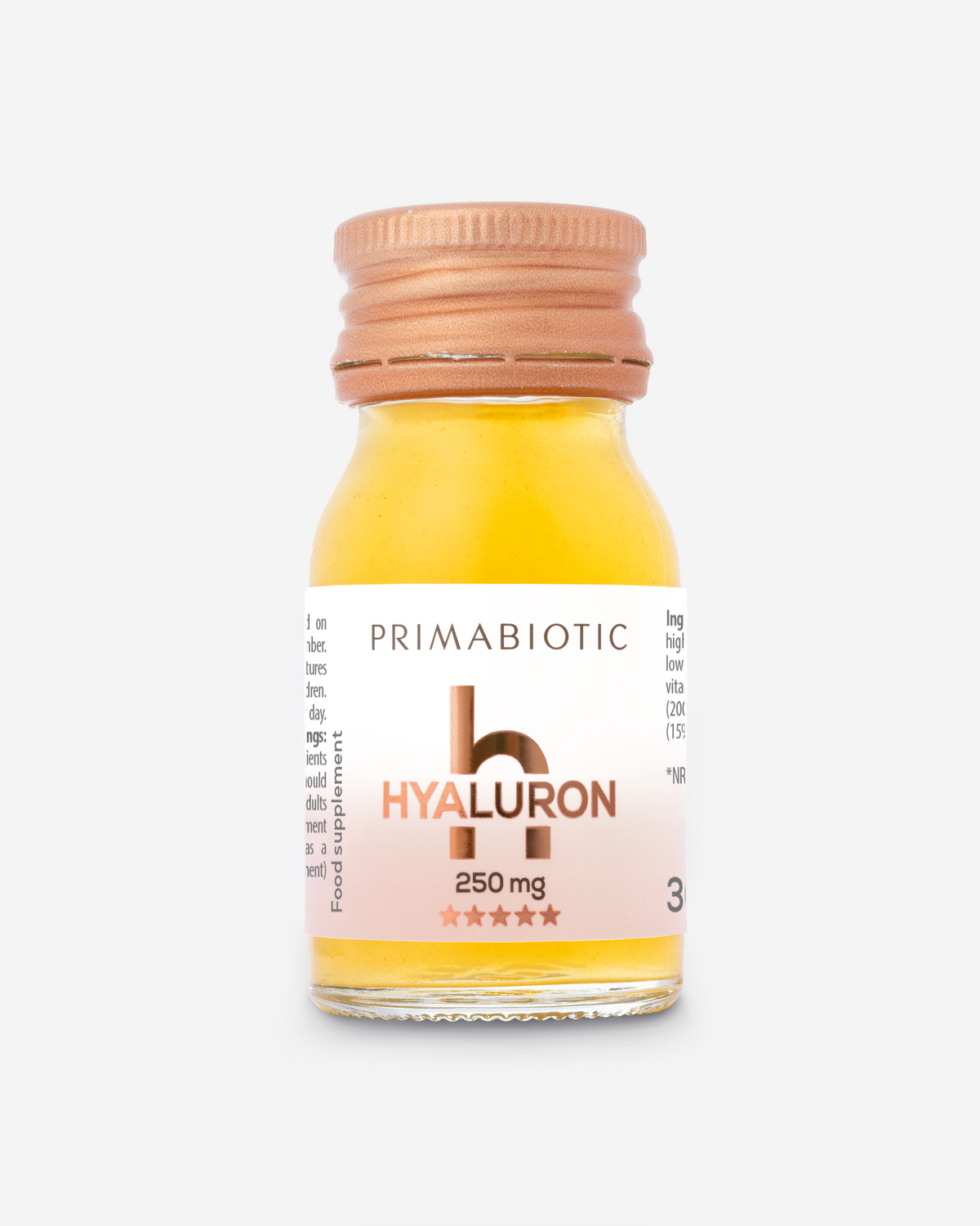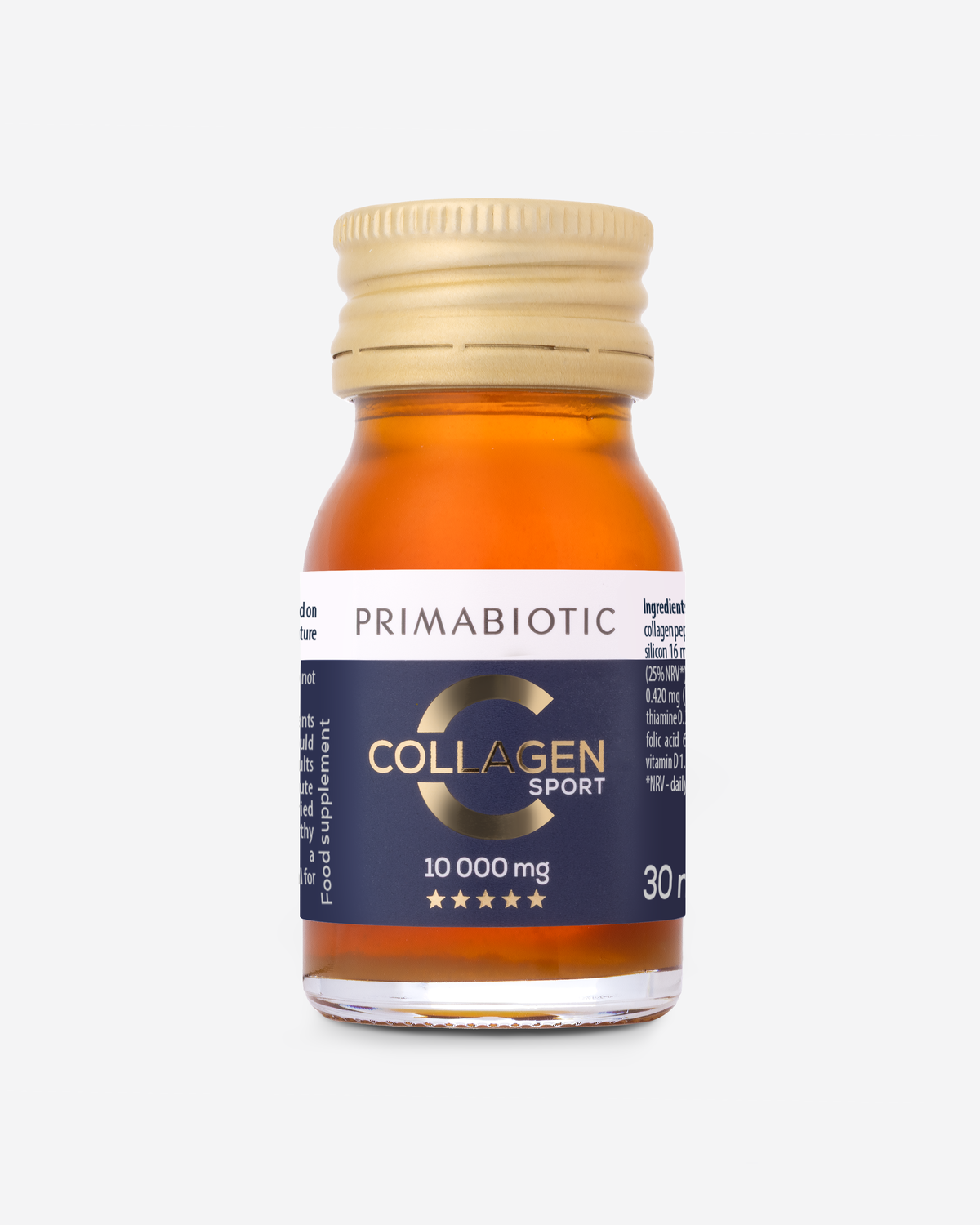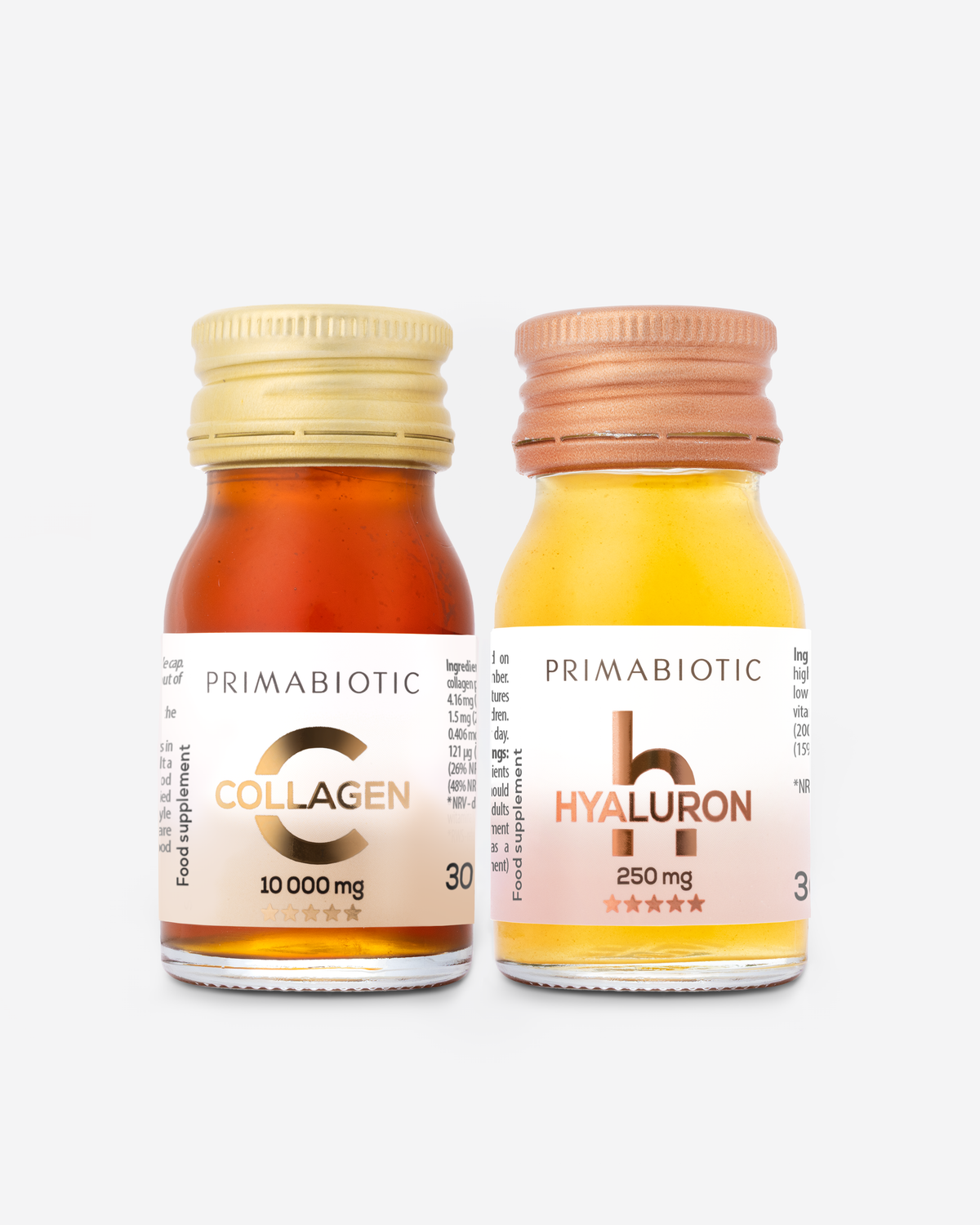In recent years, collagen has become a highly popular ingredient in dietary supplements supporting the skin, joints, and hair. However, to effectively benefit the body, it’s not enough to simply provide the building blocks – the right conditions for their use are also essential. This is where vitamin C enters the picture – a key cofactor without which collagen synthesis cannot proceed properly. Discover how this process works and why combining collagen supplementation with vitamin C can enhance the body’s physiological functions.
Collagen Synthesis – Meaning and Process
Collagen synthesis is the biological process by which the body produces collagen – a protein that makes up a major component of the skin, tendons, bones, and blood vessels. As one of the body’s key structural proteins, collagen plays a crucial role in skin elasticity, joint flexibility, and overall tissue strength.
Although the human body can produce collagen on its own, this process slows down with age. Additionally, during menopause, collagen biosynthesis is disrupted. Environmental and lifestyle factors like stress, pollution, UV exposure, smoking, and a poor diet can further impair collagen production. This is why interest in supporting the body's natural mechanisms through collagen supplementation is growing.
How to Increase Collagen Synthesis – Step by Step
Collagen synthesis is a complex, multi-stage process that occurs primarily in connective tissue cells – fibroblasts. It requires the availability of certain amino acids, as well as enzymes and cofactors such as vitamin C, which plays a key role in stabilising the forming protein. Here's how the process works:
-
Transcription of Collagen Genes
Collagen-encoding genes (mainly COL1A1 and COL1A2 for type I collagen) are activated in the cell nucleus, producing mRNA that is transported to the cytoplasm. -
Translation and Formation of Preprocollagen
mRNA is translated by ribosomes into a precursor molecule – preprocollagen, which contains a signal sequence and the structural blueprint for collagen. -
Post-Translational Modifications in the Endoplasmic Reticulum
Key steps occur at this stage:- Hydroxylation of proline and lysine residues, necessary for stabilising the triple helix structure. This step depends on vitamin C – without it, hydroxylase enzymes remain inactive.
- Glycosylation of certain hydroxylysine residues – sugar residues are attached.
- Triple helix folding – three peptide chains come together to form a stable procollagen molecule.
-
Transport and Secretion of Procollagen
Procollagen is transported via the Golgi apparatus and secreted outside the cell into the extracellular space. -
Maturation and Fibre Formation
Enzymes like procollagen peptidases remove the terminal ends, forming tropocollagen. Tropocollagen molecules are then cross-linked by lysyl oxidase, creating strong collagen fibres.
This entire process can be disrupted by a deficiency of essential nutrients – most notably vitamin C, which is crucial for the stability and quality of synthesised collagen. That’s one of the main reasons collagen supplements are often paired with vitamin C to enhance bioavailability and effectiveness.
Vitamin C and Collagen – Why It Matters
Vitamin C (ascorbic acid) is indispensable in the collagen synthesis process. It acts as a cofactor for the hydroxylation of proline and lysine – key modifications required for stable and functional collagen.
Scientific studies confirm that vitamin C deficiency leads to impaired collagen production, which can negatively affect skin, gums, bones, and blood vessels. Additionally, vitamin C is a powerful antioxidant that protects fibroblasts – the cells responsible for collagen production – from oxidative stress.
Therefore, for maintaining health and a youthful appearance, an adequate intake of vitamin C is fundamental in supporting natural collagen synthesis.
Can You Take Collagen and Vitamin C Together?
Products that combine collagen and vitamin C are increasingly popular – and with good reason. From a physiological standpoint, this combination offers complete support for the collagen synthesis process.
While collagen (in the form of hydrolysates or peptides) provides the structural building blocks, vitamin C creates the optimal environment for efficient utilisation. Research shows that this synergy can improve skin elasticity, hydration, and overall appearance. When choosing a collagen supplement, it’s wise to opt for one that also contains vitamin C in the right dose.
What Happens If You Take Collagen Without Vitamin C?
It depends. While collagen supplements without vitamin C still provide valuable amino acids, the absence of vitamin C can limit their effectiveness – especially if you’re deficient.
Without vitamin C, the critical hydroxylation step cannot occur, which means the collagen formed may be unstable and less effective. This is why many experts stress that vitamin C isn’t just a bonus – it’s essential for the successful synthesis of collagen.
For optimal results, combining collagen and vitamin C – whether through diet or supplements – is a smart approach to support the body's natural repair and regeneration processes.
See also other articles:





